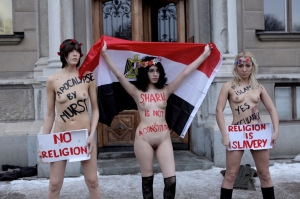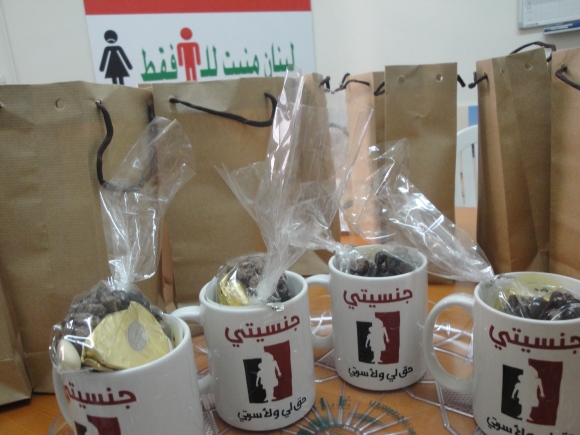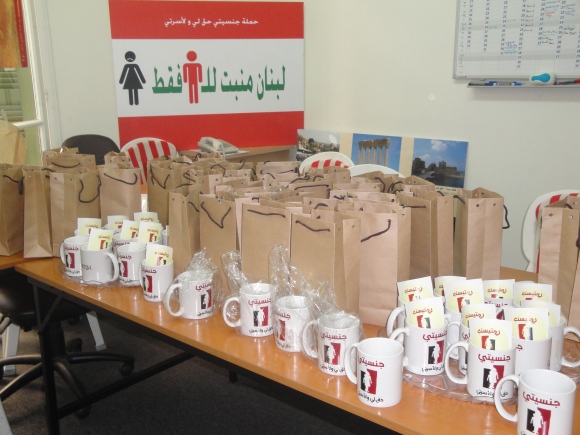« Les musulmans semblent éprouver un sentiment de puissance virile à voiler leurs femmes, et les Occidentaux à les dévoiler », écrivait l’essayiste marocaine Fatema Mernissi dans Le Harem et l’Occident (Albin Michel, 2001). L’engouement des médias français pour des figures comme les Femen ou Aliaa El-Mahdy, l’étudiante égyptienne qui, en 2011, avait posé nue sur son blog (1), offre une nouvelle confirmation de la justesse de cette observation. On a pu voir sur France 2, le 5 mars, un documentaire consacré au collectif d’origine ukrainienne implanté en France depuis un peu plus d’un an (2), et un autre intitulé Aliaa, la révolutionnaire nue sur Public Sénat pour le 8 mars, Journée internationale des femmes.
Tant pis pour les milliers de femmes qui ont le mauvais goût de lutter pour leurs droits tout habillées, et/ou d’offrir un spectacle moins conforme aux critères dominants de jeunesse, de minceur, de beauté et de fermeté. « Le féminisme, c’est ces femmes qui ont défilé dans les rues du Caire, pas les Femen ! Et sur ces femmes-là, je vois peu de documentaires TV », s’insurgeait sur Twitter, le 6 février dernier, la correspondante de France Inter en Egypte, Vanessa Descouraux. En France, les organisations féministes « se voient désormais plus souvent interpellées sur ce qu’elles pensent du mouvement d’origine ukrainienne que sur leurs propres actions » (3).
« Si tu montres tes nichons,
je reviens avec mon photographe »
Femmes, vous voulez vous faire entendre ? Une seule solution : déshabillez-vous ! En octobre 2012, en Allemagne, les réfugiés qui campaient devant la Porte de Brandebourg, au centre de Berlin, pour dénoncer leurs conditions de vie peinaient à attirer l’attention des médias. En colère, une jeune femme qui manifestait avec eux lança à un journaliste de Bild : « Tu veux que je me mette à poil ? » « Le journaliste acquiesce et promet de revenir avec son photographe. D’autres journalistes l’apprennent et voilà, la foule d’objectifs se réunit autour des jeunes femmes qui soutiennent les réfugiés. Elles ne se sont pas déshabillées, mais ont profité de l’occasion pour dénoncer le sensationnalisme des médias (4). »
Les Femen, elles, ont été plus pragmatiques. Lors de leurs premières actions, en Ukraine, en 2008, elles avaient inscrit leurs slogans sur leurs dos nus, mais les photographes ne s’intéressaient qu’à leurs seins. Elles ont donc déplacé les inscriptions (5)… Cet ordre des choses n’inspire pas d’états d’âme particuliers à Inna Chevchenko, l’Ukrainienne qui a exporté la marque Femen en France : « On sait de quoi les médias ont besoin, déclarait-elle en décembre à Rue89. Du sexe, des scandales, des agressions : il faut leur donner. Etre dans les journaux, c’est exister (6). » Vraiment ?
Certes, la militante féministe Clémentine Autain a raison de rappeler que « le happening, c’est dans notre culture. De la suffragette Hubertine Auclert, qui renversait les urnes lors des élections municipales de 1910 pour que les journaux de la IIIe République puissent avoir leurs photos trash à la Une, aux militantes du MLF qui balançaient du mou de veau dans les meetings des anti-avortement dans les années 1970, on sait aussi monter des coups (7) ! ». Ce mode d’action est aussi celui de l’association Act Up dans sa lutte contre le sida. Mais encore faut-il que derrière les « coups », il y ait un fond politique solide et bien pensé qui leur donne leur sens. Or, dans le cas des Femen, c’est peu dire que le discours ne suit pas. Quand il ne se révèle pas franchement désastreux.
Contre les vieilles femmes qui lisent des livres
La réduction permanente des femmes à leur corps et à leur sexualité, la négation de leurs compétences intellectuelles, l’invisibilité sociale de celles qui sont inaptes à complaire aux regards masculins constituent des pierres d’angle du système patriarcal. Qu’un « mouvement » — elles ne seraient qu’une vingtaine en France — qui se prétend féministe puisse l’ignorer laisse pantois. « Nous vivons sous la domination masculine, et cela [la nudité] est la seule façon de les provoquer, d’obtenir leur attention », déclarait Inna Chevchenko au Guardian (8). Un féminisme qui s’incline devant la domination masculine : il fallait l’inventer.
Non seulement Chevchenko accepte cet ordre des choses, mais elle l’approuve (toujours dans The Guardian) : « Le féminisme classique est une vieille femme malade qui ne marche plus. Il est coincé dans le monde des conférences et des livres. » Elle a raison : à bas les vieilles femmes malades, elles ne sont même pas agréables à regarder. Et les livres, c’est plein de lettres qui font mal à la tête, bouh ! Auteur d’un excellent livre sur les usages du corps en politique (9), Claude Guillon commentait : « Le mieux intentionné des observateurs dirait que cette phrase exprime la présomption et la cruauté de la jeunesse. Il faut malheureusement ajouter pour l’occasion : et sa grande sottise ! En effet, et peut-être Inna aurait-elle pu le lire dans un livre, l’image des féministes comme de vieilles femmes coupées du monde (comprenez : et du marché de la chair) est un très vieux cliché antiféministe, qu’il est navrant de voir repris par une militante qui prétend renouveler le féminisme (10). » Depuis, les représentantes françaises du collectif ont cependant dû se résigner à sortir un livre d’entretiens (11) : « En France, il faut publier des textes pour être reconnu, légitime », soupire l’une d’entre elles (Libération, 7 mars 2013). Dur, dur.
Pour Rue89, Chevchenko résumait ainsi le discours des jeunes Françaises qui voulaient rejoindre les Femen : « Elles me disaient : “Les mouvements féministes qui existent déjà en France, ce ne sont pas des mouvements faits pour les jeunes femmes, mais pour des femmes intellectuelles qui ressemblent à des hommes, qui nient la sexualité, le fait qu’une femme puisse être féminine.” » A cet égard, il faut le reconnaître, les Femen marquent incontestablement un progrès. S’agissant d’une ancêtre comme Simone de Beauvoir, il a fallu attendre le centenaire de sa naissance, en 2008, pour la voir enfin à poil : c’était long. Mais la patience du monde fut récompensée : avec délice, Le Nouvel Observateur (3 janvier 2008) publia en couverture une photo montrant l’auteure du Deuxième sexe nue de dos dans sa salle de bains (12). Les Femen, elles, sont bonnes filles : elles mâchent le boulot (« femen » signifie d’ailleurs « cuisse » en latin, mais rien à voir, elles ont choisi ce nom « parce qu’il sonnait bien »). Après tout, ne soyons pas pudibonds : pour être féministe, on n’en a pas moins un corps, une sensualité, une vie sexuelle. On peut seulement déplorer que l’attente de toutes celles — et ceux — qui rêvent de se repaître des petites fesses de Jean-Paul Sartre dure toujours. Que fait Le Nouvel Observateur ? Les grands intellectuels n’auraient-ils pas, eux aussi, un corps, une sensualité, une vie sexuelle ? Pourquoi ne pas nous en faire profiter ? Pourquoi ne sont-ils pas, eux aussi, une denrée publique, que l’on peut exposer et commercialiser indépendamment de la volonté des intéressés ?
« Féminisme pop »
Après s’être attiré une large sympathie lorsqu’elles se sont fait agresser par les extrémistes catholiques de Civitas au cours de la manifestation contre le mariage pour tous, en novembre 2012, les Femen ont suscité de plus en plus de réserves et de désaveux — par exemple de la part du collectif féministe Les TumulTueuses, ou de l’actrice et réalisatrice Ovidie. Critiquées pour la caution qu’elles apportent à la vision du corps féminin forgée par l’industrie publicitaire, elles se sont défendues en publiant des photos de certaines de leurs membres qui s’écartent de ces canons. Le problème, c’est qu’on ne verra jamais celles-ci en couverture des Inrockuptibles, les seins en gant de toilette cadrant mal avec le « féminisme pop » que dit priser le magazine — ni dans Obsession, le supplément mode et consommation du Nouvel Observateur, pour lequel les Femen ont posé en septembre dernier. Et pas question d’arguer que ce n’est pas de leur faute : si elles voulaient être un minimum crédibles, elles devraient imposer la présence de ces membres lors des séances photo. « Quel peut être l’effet produit par cette photo de groupe [dans Les Inrockuptibles] sur les femmes moins jeunes, ou jeunes mais moins favorisées par le hasard génétique ? interroge Claude Guillon. Le même effet que le terrorisme publicitaire et machiste que le féminisme ne cesse de dénoncer. Cette photo est pire qu’une maladresse, c’est un contresens politique. »
Les dénégations répétées des membres du collectif ne suffisent pas, par ailleurs, à dissiper le soupçon d’une politique de la photogénie délibérée. Dans le livre Femen, l’une des fondatrices ukrainiennes déclare : « Nos filles doivent être sportives pour endurer des épreuves difficiles, et belles pour utiliser leur corps à bon escient. Pour résumer, Femen incarne l’image d’une femme nouvelle : belle, active et totalement libre. » Le féminisme, mieux qu’un yaourt au bifidus. L’une de ses camarades françaises invoque une « erreur de traduction » (13)…
Quoi qu’il en soit, en l’état actuel des choses, il n’est pas certain que les médias et le grand public fassent complètement la différence entre les Femen et la Cicciolina par exemple — précurseuse de la couronne de fleurs sur cheveux blonds —, ou la pin-up de la page 3 du quotidien britannique The Sun. Claude Guillon, encore : « “Au moins, me disait une jeune femme, depuis qu’elles se mettent à poil, on les écoute !” Que nenni. On les regarde tout au plus. Et lorsque les rédacteurs en chef en auront marre de mettre du nibard à la une (ça lasse, coco !), on ne les regardera plus. » Les journalistes de Rue89 sont elles-mêmes perplexes devant le succès d’audience du collectif : « Le premier article que nous avons fait sur les Femen était un “En images”. On y voyait simplement la photo d’une Femen devant la maison de DSK, seins nus. Trois paragraphes accompagnaient l’image. L’article a reçu 69 500 visites. C’est beaucoup. » Dans le fumeux « sextrémisme » promu par le groupe, il y a tout à parier que c’est surtout « sexe » qui fait tilter la machine médiatique.
Des médias devenus tous féministes ?
Le féminisme serait donc devenu consensuel, au point de faire la couverture de tous les journaux et d’avoir l’honneur de documentaires télévisés abondamment promus dans la presse ? Il faudrait être naïf pour le croire. L’intérêt pour les Femen s’avère parfaitement compatible avec l’antiféminisme le plus grossier. Ainsi, le 7 mars, Libération leur consacrait une double page ; cela ne l’a pas empêché de publier le lendemain, pour la Journée internationale des femmes, un numéro d’anthologie. Sous le titre « Du sexe pour tous ! », il a choisi de consacrer sa Une à l’« assistance sexuelle » pour les handicapés. La photo d’illustration montrait un handicapé au lit avec une « assistante » (blonde, souriante, incarnation de la douceur et de l’abnégation qui sont la vocation des vraies femmes), et non l’inverse : on a bien dit « Du sexe pour tous », pas « pour toutes ».
Pour le quotidien, ce combat s’inscrit dans le cadre de sa défense acharnée de la prostitution. En janvier dernier, déjà, il publiait le portrait d’un polyhandicapé qui militait pour le droit à l’« assistance sexuelle ». Comme le faisait remarquer sur son blog le cinéaste Patric Jean (14), cet homme avait cependant eu au cours de sa vie deux compagnes, et même des enfants, ce qui relativisait quelque peu l’argument de l’incapacité des handicapés à avoir une vie sexuelle. Histoire de compléter ce tableau de la femme selon Libé, le portrait de dernière page était celui de Miss France.
Même méfiance quand on voit Charlie Hebdo, bastion de l’humour de corps de garde, dont les dessins répètent semaine après semaine que la pire infamie au monde consiste à se faire sodomiser, c’est-à-dire à se retrouver dans une posture « féminine » (15), collaborer avec les Femen pour un numéro spécial (6 mars 2013). En couverture, le dessin de Luz reprend un visuel du groupe qui montre ses militantes brandissant une paire de testicules. Le cliché des féministes hystériques et « coupeuses de couilles », couplé à l’esthétique publicitaire : une bonne synthèse du produit Femen. Dans l’entretien qu’elle accorde à l’hebdomadaire satirique, Chevchenko déclare vouloir une société « où les femmes ont plus de pouvoirs que les hommes ». Bien bien bien.
Un pseudo-féminisme qui suscite un engouement général des plus suspects : en France, cela rappelle la bulle médiatique autour de Ni putes ni soumises, qui fut célébrée dans la mesure où elle permettait de renforcer la stigmatisation de l’islam et du « garçon arabe » (16). Deux ex-militantes de l’association, Loubna Méliane — assistante parlementaire du député socialiste Malek Boutih — et Safia Lebdi, ont d’ailleurs fait partie des premières ralliées aux Femen, avant de prendre leurs distances. La section française du groupe s’est installée à la Goutte d’Or, quartier parisien où vivent beaucoup de musulmans ou assimilés, et a annoncé son implantation par une affiche bleu-blanc-rouge qui rappelait curieusement les « apéros saucisson-pinard » organisés au même endroit en 2010 par des militants d’extrême droite.
« Mentalité arabe » en Ukraine
Si l’anticléricalisme radical du collectif se comprend sans peine compte tenu du poids de l’Eglise orthodoxe dans la vie publique ukrainienne, ses porte-parole ont tendance à en franchir le cadre lorsqu’il s’agit de l’islam. L’une des fondatrices du mouvement, Anna Hutsol, a ainsi flirté avec le racisme en déplorant que la société ukrainienne ait été incapable « d’éradiquer la mentalité arabe envers les femmes » (17).
En mars 2012, sous le slogan « Plutôt à poil qu’en burqa », Femen France a organisé une « opération anti-burqa » devant la Tour Eiffel. Ses membres clament aussi que « La nudité, c’est la liberté », ou scandent : « France, déshabille-toi ! » Elles perpétuent ainsi un postulat très ancré dans la culture occidentale selon lequel le salut ne peut venir que d’une exposition maximale, en niant la violence que celle-ci peut parfois impliquer (18).
De nombreuses féministes leur ont objecté que, plutôt que d’affirmer la supériorité de la nudité, il vaudrait mieux défendre la liberté des femmes à s’habiller comme elles le souhaitent. Mais les Femen sont certaines de détenir la vérité. « On ne va pas adapter notre discours aux dix pays où s’est implanté le groupe. Notre message est universel », assure Chevchenko à 20minutes. Ce mélange de paresse intellectuelle et d’arrogance, cette prétention à dicter la bonne attitude aux femmes du monde entier, sont accueillis plutôt fraîchement. La chercheuse Sara Salem a ainsi reproché à l’étudiante égyptienne Aliaa El-Mahdy son alliance avec les Femen : « Si le geste de se déshabiller sur son blog pouvait être vu comme un moyen de défier une société patriarcale, il est problématique qu’elle collabore avec un groupe qui peut être défini comme colonialiste (19). » Mais pourquoi se remettre en question quand montrer vos seins suffit à vous assurer une audience maximale ?



































